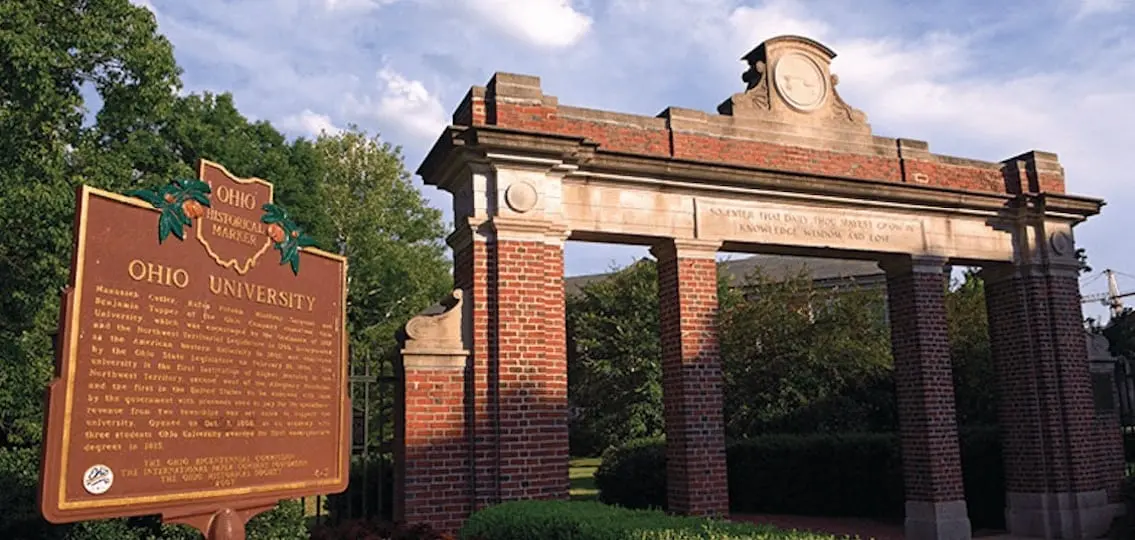What’s so special about the Russ College of Engineering and Technology at Ohio University? Producing engineers with top-notch skills is just the beginning. What really sets the Russ College apart is its commitment to providing students with the beyond-the-classroom skills that today’s engineers need to be successful. Oh, and let’s not forget its small size, committed faculty, world-class research, impressive facilities, and a philosophy—called Create for Good—that graduates meta-engineers and technologists who truly are prepared to roll up their sleeves and change the world. Let’s take a closer look at Why OHIO.
Small Size, Engaged Faculty
With just 1,840 students and a quiet green almost all to itself on the far end of OHIO’s campus in Athens, Ohio, the Russ College feels a lot like a small liberal arts college… but for engineers.
“I did my undergraduate degree at a private university and I would say that the atmosphere we have for our students at the Russ College is a very similar experience,” says Dr. Deborah McAvoy, Russ College’s associate dean for academics. “It’s a very strong community. The faculty care. The students care. All the staff care. It’s a pretty awesome place to be, actually.”
Those caring faculty are world-class researchers who teach 100 percent of the classes at the Russ College. That’s unusual, explains McAvoy.
“At larger universities, you might not see all the faculty in the classroom,” she says. “But you will see every one of our faculty members in the classroom. Our faculty really get to know our students well.”
Grace Sallar, who was an undergraduate and graduate student at Russ, couldn’t agree more. “You get a lot of attention in class,” she says. “That’s part of the reason I decided to stay here for graduate school. There’s a lot of one-on-one.”
Create for Good
A centerpiece of the curriculum at the Russ College is the Create for Good philosophy. Its goal? To graduate meta-engineers and technologists who can make the world a better place. [adrotate banner=”8″]
“At the Russ College, engineering is not just about design,” McAvoy explains. “It’s also what we do on a daily basis, asking ourselves, how does it impact society, and what is the best thing for society?”
Students learn to build this kind of thinking into the design process from the get-go.
Take the example of a waste-water treatment plant. “With an emphasis on design only, you’d focus on just building the plant,” says McAvoy. “But we ask our students to go above and beyond that practical application and really look at the softer side, too. We ask them to collaborate with each other, interact with the public, and really consider the societal perspective on that waste-water treatment plant and its impact.”
Well-Rounded Engineers
Toss out any old-fashioned ideas—say, that engineers and technologists are pocket-protector nerds—because today’s successful professionals aren’t just great at design. Those soft skills are communication, critical thinking, collaboration, creativity, and leadership.
That’s why the curriculum at the Russ College emphasizes the “meta-engineer”— everything “beyond just design skills,” explains McAvoy—to create graduates who are truly well-rounded professionals.
“Everybody who graduates with an engineering degree can design,” adds McAvoy. “But it’s all those softer skills that employers are looking for that make the difference.”
Such skills are taught in the classroom, but students also have plenty of out-of-class opportunities to develop them, too. These include undergraduate research opportunities, internships, student-run groups, and off-campus experiences, including programs in Greece and Ghana.
“By the time they graduate, they are really prepared to be successful in their chosen career path,” says McAvoy.




